How I Learned to Stop Worrying and Love Failure
This is a PechaKucha presentation/Ignite Talk I wrote for the SIGDOC 2021 conference, hosted by Arizona State University. In a PechaKucha presentation, you get 5 minutes to present an idea with slides that automatically advance every 15 seconds. I used my "Failure to Fracture" series as a vehicle for learning how to love mistakes and failure.
This presentation was broadcast internationally to Brazil, Ireland, Portugal, China, and several locations across the US.
Video Transcript
As a kid, I hated making mistakes. Incorrect answers on a test brought my grade down. Poorly done chores meant redoing them and I wasn’t getting paid hourly by my parents. Mistakes were costly and I trained myself to avoid them.
Mistake avoidance eventually led to self resentment. When playing guitar, every little mistake proved I was... the worst guitarist on earth. Every bug in my code meant I was the worst coder on earth. And lots of little mistakes adds up to feeling like a failure.
Now I’m almost forty years old and I see mistakes as the bedrock of my success. And failures are even more important. So how did I go from being the worst human on earth to being happy and taking pride in my mistakes?
It all starts with a song. (No, I won't sing to you.) I released a book this year about how I spent twenty-two years learning one song. You're probably thinking, "Maybe he is the worst guitarist on earth!" But this song is not ordinary.
It's called “Fracture.” It was written by British guitarist Robert Fripp and performed by the band King Crimson in 1974. It’s 11 minutes long and has a 3-minute section played at 10 notes per second with every note played on a different string.
Fracture is like one of those Chinese finger traps. The harder you pull, the stronger the trap. The only way out is by relaxing and sliding the fingers out. For the longest time, I didn't know performance was a side effect of effortlessness.
Maybe you're thinking, "How can someone spend 22 years on one song?" First of all, I played other songs. Second, it's so hard, only a dozen or so people on earth can play it. Third, Fracture is self-esteem nightmare for compulsive mistake avoiders.
I spent the first 17 years learning by brute force. I could only practice a few minutes before feeling pain in my shoulder, hand, arm, or wrist. I didn’t know what I didn’t know, so I had to go straight to the source.
In February 2015, I flew to a small town outside Mexico City to attend a guitar course taught by Robert Fripp. I was nervous about meeting one of my guitar heroes, but more nervous that I never got the address for the course!
I got there safely, though, and Robert kicked off the week by asking, “Who here is self-taught?” I raised my hand. He said, “So someone who knew nothing about music or guitar taught you everything you know. Let’s change that.”
It was a strange time in Mexico. We barely touched the guitar the first three days. We mostly learned to sit, stand, and breathe. I began to wonder if I’d joined a cult because we were doing Tai Chi, sitting in extended silence, drinking tea, and doing chores.
When we DID start playing guitar, my whole body and brain were hurting from all the physical and mental work. The instructors said I was adapting to the changes quickly, but I think I was so far off-track, it required painful amounts of correction.
Robert says, “The way we hold the guitar pick is the way we live our lives.” I had been holding the pick with 17 years of mindless habits. When he adjusted my picking hand, he was correcting 17 years of stuff to undo in my life.
Then he said, “When you get home, play a single open string eight hours a day for a month.” I didn’t have that kind of time, so I spent about two hours a day for three months driving myself and my family crazy.
This forced me to re-learn how to play guitar and face 17-years of habituated technique problems. It also corrected my posture, clarified how I approach music, and even changed how I walk. I could finally practice Fracture FOR HOURS without pain.
I also had a newfound appreciation for mistakes. Mistakes are not problems. They're opportunities for understanding. In my youth, I didn't see the learning opportunity of mistakes. Worse, I was correcting only the mistakes, not my whole self.
The word "failure" also changed in my mind. No longer did it mean I was "the worst," but rather that I had a goldmine of opportunity for improving. Failure became like a check engine light, telling me to slow down and take a look.
I catalogued my "Failure to Fracture" journey on YouTube and the series has about 500,000 views. It's hard to believe there are so many people who want to watch me talk about failure. But that's been part of the realization, too.
A huge number of people want to participate in a story of struggle, even if it takes years and isn't an outright success. Mistakes and failure are a natural part of being human. If I'm not making mistakes or failing, I'm being dishonest with myself or stagnating.
For most of us, mistakes and failures aren't life-or-death issues—they're usually momentary blows to our pride. Mistakes are a necessary part of learning, growing, and being human. By sharing and investing in my mistakes, I learned to stop worrying and love failure.
